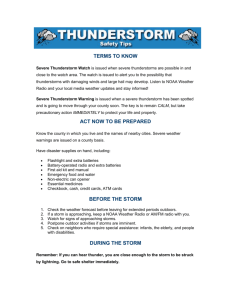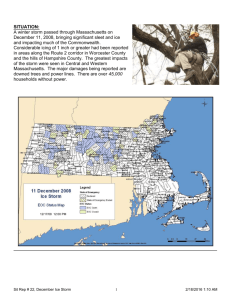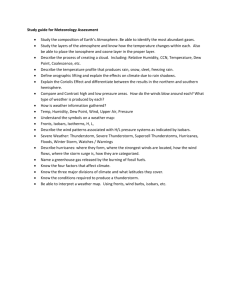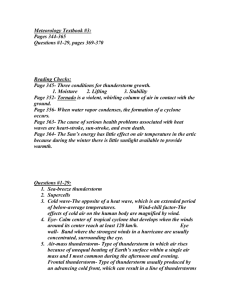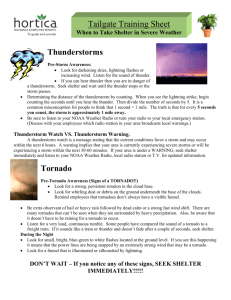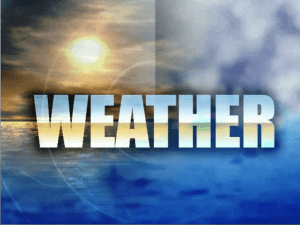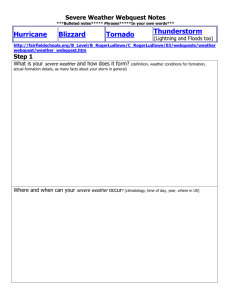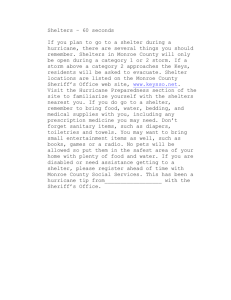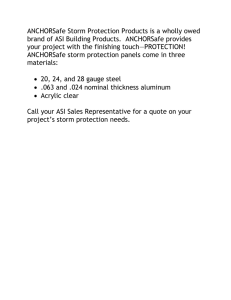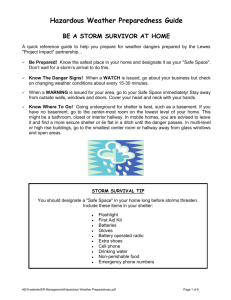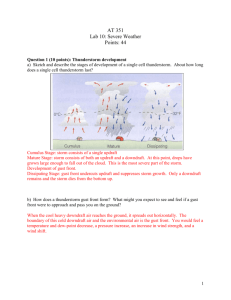Severe Thunderstorm Warning
advertisement
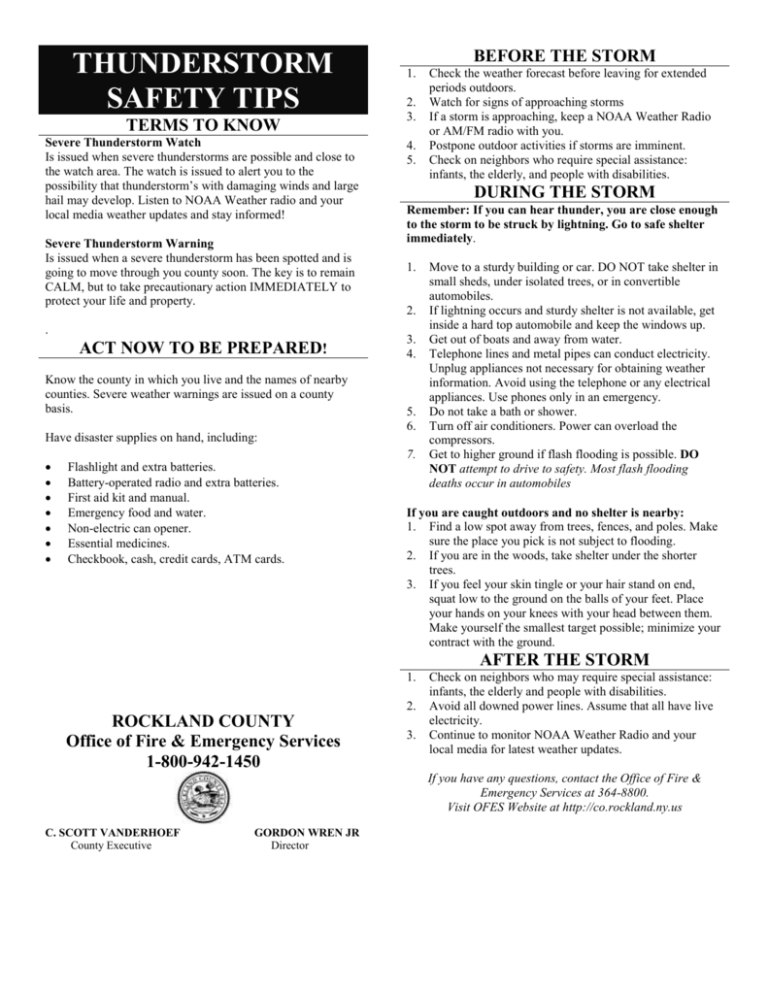
THUNDERSTORM SAFETY TIPS TERMS TO KNOW Severe Thunderstorm Watch Is issued when severe thunderstorms are possible and close to the watch area. The watch is issued to alert you to the possibility that thunderstorm’s with damaging winds and large hail may develop. Listen to NOAA Weather radio and your local media weather updates and stay informed! Severe Thunderstorm Warning Is issued when a severe thunderstorm has been spotted and is going to move through you county soon. The key is to remain CALM, but to take precautionary action IMMEDIATELY to protect your life and property. . ACT NOW TO BE PREPARED! Know the county in which you live and the names of nearby counties. Severe weather warnings are issued on a county basis. BEFORE THE STORM 1. 2. 3. 4. 5. DURING THE STORM Remember: If you can hear thunder, you are close enough to the storm to be struck by lightning. Go to safe shelter immediately. 1. 2. 3. 4. 5. 6. Have disaster supplies on hand, including: 7. Flashlight and extra batteries. Battery-operated radio and extra batteries. First aid kit and manual. Emergency food and water. Non-electric can opener. Essential medicines. Checkbook, cash, credit cards, ATM cards. Check the weather forecast before leaving for extended periods outdoors. Watch for signs of approaching storms If a storm is approaching, keep a NOAA Weather Radio or AM/FM radio with you. Postpone outdoor activities if storms are imminent. Check on neighbors who require special assistance: infants, the elderly, and people with disabilities. Move to a sturdy building or car. DO NOT take shelter in small sheds, under isolated trees, or in convertible automobiles. If lightning occurs and sturdy shelter is not available, get inside a hard top automobile and keep the windows up. Get out of boats and away from water. Telephone lines and metal pipes can conduct electricity. Unplug appliances not necessary for obtaining weather information. Avoid using the telephone or any electrical appliances. Use phones only in an emergency. Do not take a bath or shower. Turn off air conditioners. Power can overload the compressors. Get to higher ground if flash flooding is possible. DO NOT attempt to drive to safety. Most flash flooding deaths occur in automobiles If you are caught outdoors and no shelter is nearby: 1. Find a low spot away from trees, fences, and poles. Make sure the place you pick is not subject to flooding. 2. If you are in the woods, take shelter under the shorter trees. 3. If you feel your skin tingle or your hair stand on end, squat low to the ground on the balls of your feet. Place your hands on your knees with your head between them. Make yourself the smallest target possible; minimize your contract with the ground. AFTER THE STORM 1. 2. ROCKLAND COUNTY Office of Fire & Emergency Services 1-800-942-1450 3. Check on neighbors who may require special assistance: infants, the elderly and people with disabilities. Avoid all downed power lines. Assume that all have live electricity. Continue to monitor NOAA Weather Radio and your local media for latest weather updates. If you have any questions, contact the Office of Fire & Emergency Services at 364-8800. Visit OFES Website at http://co.rockland.ny.us C. SCOTT VANDERHOEF County Executive GORDON WREN JR Director
